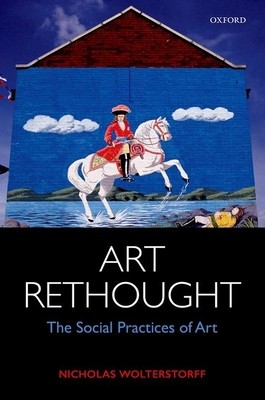
- We will send in 10–14 business days.
- Author: Nicholas Wolterstorff
- Publisher: Oxford University Press, USA
- ISBN-10: 0198747756
- ISBN-13: 9780198747758
- Format: 16.3 x 23.6 x 2.5 cm, kieti viršeliai
- Language: English
- SAVE -10% with code: EXTRA
Reviews
Description
Human beings engage works of the arts in many different ways: they sing songs while working, they kiss icons, they create and dedicate memorials. Yet almost all philosophers of art of the modern period have ignored this variety and focused entirely on just one mode of engagement, namely, disinterested attention. In the first part of the book Nicholas Wolterstorff asks why philosophers have concentrated on just this one mode of engagement. The answer he proposes is that almost all philosophers have accepted what the author calls the grand narrative concerning art in the modern world. It is generally agreed that in the early modern period, members of the middle class in Western Europe increasingly engaged works of the arts as objects of disinterested attention. The grand narrative claims that this change represented the arts coming into their own, and that works of art, so engaged, are socially other and transcendent. Wolterstorff argues that the grand narrative has to be rejected
as not fitting the facts.
EXTRA 10 % discount with code: EXTRA
The promotion ends in 21d.20:52:51
The discount code is valid when purchasing from 10 €. Discounts do not stack.
- Author: Nicholas Wolterstorff
- Publisher: Oxford University Press, USA
- ISBN-10: 0198747756
- ISBN-13: 9780198747758
- Format: 16.3 x 23.6 x 2.5 cm, kieti viršeliai
- Language: English English
Human beings engage works of the arts in many different ways: they sing songs while working, they kiss icons, they create and dedicate memorials. Yet almost all philosophers of art of the modern period have ignored this variety and focused entirely on just one mode of engagement, namely, disinterested attention. In the first part of the book Nicholas Wolterstorff asks why philosophers have concentrated on just this one mode of engagement. The answer he proposes is that almost all philosophers have accepted what the author calls the grand narrative concerning art in the modern world. It is generally agreed that in the early modern period, members of the middle class in Western Europe increasingly engaged works of the arts as objects of disinterested attention. The grand narrative claims that this change represented the arts coming into their own, and that works of art, so engaged, are socially other and transcendent. Wolterstorff argues that the grand narrative has to be rejected
as not fitting the facts.


Reviews